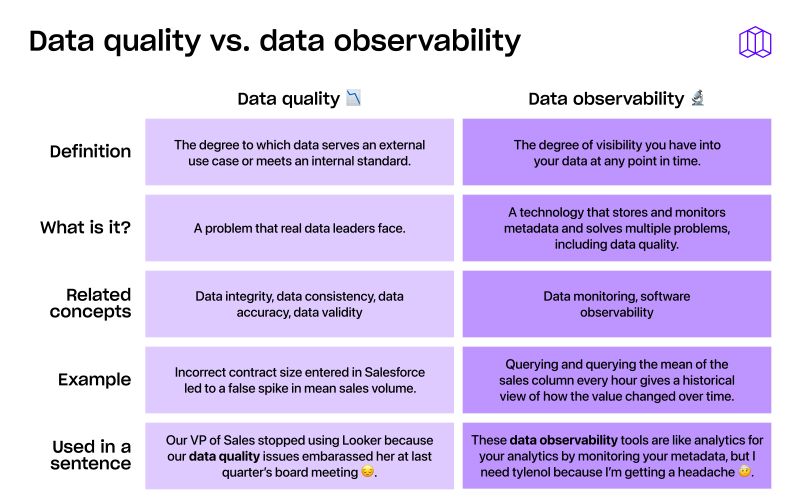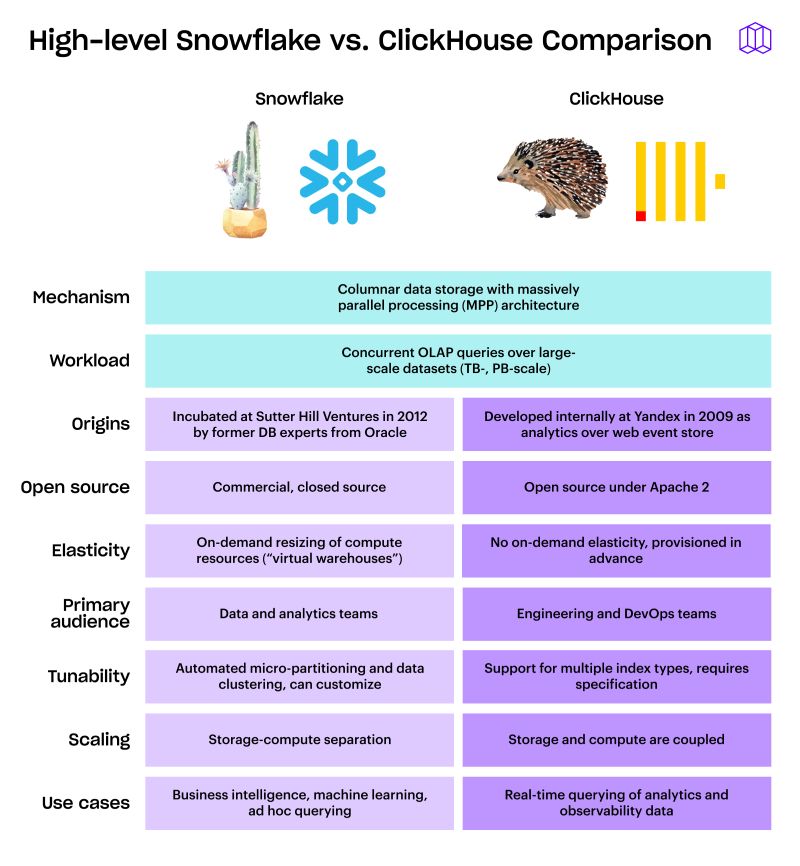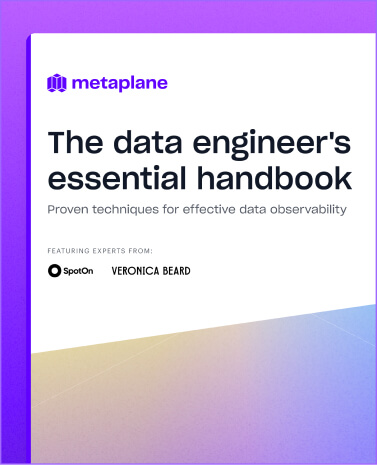Five Talks on Organizations and Teams in Data from Coalesce 2022
More words of wisdom on how to build data teams starting with the first hire, keeping up with changing roles, and taking care of the people on your team.

Binge-watching videos for my last post on Coalesce talks was so nice I thought I’d do it twice (and maybe a couple more times, we’ll see!). The next broad category of sessions that I wanted to talk about is Organizations and Teams.
The only thing harder than building a team is to build a team in a rapidly changing industry while the world is transitioning to a remote work model. How does your data team fit into the larger company? What roles do you prioritize? How do you bring people together from across the country, or even the world?
That’s why this topic felt more timely than ever. Companies are all at different places in their data journey, but there were still so many helpful takeaways for me that could be valuable for almost anyone on a data team or working with one. Here are five standout talks on the topic from Coalesce 2022.
1. How to be the startup savior: succeeding as the first data hire

No matter how small a tech startup is, data comes in fast. Usually, this data starts in silos that someone has to collect before copying and pasting into spreadsheets. After tiring of the mind-numbing manual toil or being frustrated by the data only telling you what happened, someone comes up with a solution: let’s hire our first data person. This role can be a lot of pressure for any employee.
Fortunately, plenty of tools and best practices can make those early days a success. The talk “‘The easy way’ to launch analytics at a startup with dbt” (video) by Lindsay Murphy and John Kennedy of Maple, a healthcare startup, felt like they were sharing a cheat code. Even though the title calls it the “easy” way, Kennedy admits “smart” might better describe their plan (it’s always going to take effort to get things done at startups, trust me).
I like the talk’s clear steps, starting with standing up a data warehouse, migrating data there, and buying, as opposed to building, some software. The speakers don’t shy away from acknowledging that challenges will come up, including getting buy-in to purchase software, teaching more of the team how to access data, and knowing when to hire a team.
🔄Key takeaway: early data hires will get pulled in a bunch of directions but can succeed with some smart software purchases and teaching people in the company about data.
2. The modern data team

Once you are beyond your first hire, building out the team is the next problem to solve. Unfortunately, there is no one-size-fits-all approach, but “The modern data team” (video) by Abhi Sivasailam goes in depth on how to conceptualize this process for any company.
The first thing to consider is how different the modern data stack looks compared to five years ago, and even established jobs like data engineer can have new responsibilities. The ease of ingestion, diffusion of data transformation, the centrality of the warehouse, new abstraction interfaces, and the democratization of advanced analytics have made data more central and often easier to interact with for more people. Capabilities that may have required a data scientist five years ago could be provided by an easy-to-use data visualization tool today.
With the increased accessibility and importance of data, more than just the data team need to keep up with the changes. Abhi argues that it’s also the larger context around technology, company, and industry guiding team design. And whoever the team ends up being, the whole company needs to reconsider product and business lifecycles where data isn’t an afterthought. It really takes more than just the data team to make data succeed in an organization.
🏞️Key takeaway: There are more opportunities than ever for data teams to make a difference in companies, just so long as they grow with the changing technology landscape and get buy-in from the company at-large.
3. Building the culture you want by leading your team there

Despite data teams being concerned with, well, data, leaders can’t forget that the people and culture of a team is crucial for success. This was the focus of “The secrets of a modern data leader: The first 365 days inside a data team” (video), a talk moderated by Christine Garcia of Atlan with Chase Giltner of Pluralsight, Erica Louie of dbt Labs, and Jonathan Talmi of Snapcommerce.
The talk was a good reminder that the best leaders take a people-first approach. Erica shared her practice of daily check-ins with her team to see how they are feeling and sending a values charter to new teammates, while Jonathan explained he practices situational leadership and matches his management style to what individuals need from him.
Chase pointed out that culture is hard to build and impossible to force. But he sets aside time each week for collaboration and pair programming. Not only are problems solved, but those hours let people make connections and help each, an organic way to foster the type of culture his company wants.
👥Key takeaway: your team is made up of real people and it will take unique cultivating to build a culture for your data team.
4. Community for the win

I loved that so many talks focused on how to support the people on teams, including “How to build your data team like a community” (video) by Kasey Mazza of HubSpot. Mazza lays out her theory of community development, which she says comes from fostering the identity, belonging, purpose, goals, and autonomy of an employee’s work life. She outlined three steps to nurture those elements: create intentional space, set clear expectations, and lead with empathy and curiosity.
On her team, creating intentional space includes check-ins to see how she can support people learning new skills and weekly check-ins to share highlights from non-work parts of their lives. Outlining expectations might seem simple enough, but it can also be done with community in mind. It can be as simple as setting guard rails instead of dictating exact rules. This can make it clear what needs to be done while still showing you trust your employees.
Leading with empathy and curiosity means assuming nothing and asking how you can help and for feedback are also good practices. This can all sound simple on paper, but in practice, it can take trial and error. Her slides say as much—there were twisting lines connecting steps to outcomes, showing that these practices are hard and not always a linear progression.
🕓Key takeaway: It’s easy to get distracted by daily work demands, but carving out time to build community is critical.
5. Data isn’t always smart

Even as I run a startup focused on helping data teams monitor their data more closely, I know data is only part of the picture. The talk “Data Led is Dumb” (video) by Emilie Schario not only wins for the most provocative talk headline but really zeros in on looking at data holistically.
Emilie uses some illustrative examples of how data can optimize one metric while missing the larger picture, like title card selection on Netflix prioritizing immediate click throughs instead of building a relationship with the talent who might get left out of the images. What happens if the actor’s feelings are hurt and they quit? Then there is no show for a title card at all. (I get lots of title cards with dragons and wizards, myself, and readers, I do click on them.)
So, it’s crucial to keep in mind that data is only good as it’s instrumented, that it lives within a context, and is never the end-all, be-all. There is a push to treat data as a product, something Emilie has argued for in the past, but in this talk, she says data teams can take it a step further and go with data as operations. This framework ensures your business can use the insights from data and drive change.
🚘Key takeaway: interesting insights are not enough; data teams can do more to drive impact by contextualizing data.
Summary
No matter where you are on your data team journey, there will be growing pains. Data is a continually changing field, and the ground underneath it shifts daily. It was refreshing to see others sharing best practices and lessons learned for us to find some stable footing.
Two main trends emerged: modern data stacks are changing what data teams look like and do. And no matter what shiny new tool gets rolled out or bought, never lose focus on the human element of your team.
The most important thing to remember? No one has all the answers; we are figuring it out together.
Next, we'll be looking at talks covering the Craft of how to put data theory into practice through effective use of conceptual and technical tools. Or, as Jason Ganz put nicely, “the art of being an analytics practitioner.”
Table of contents
Tags
...

...

















